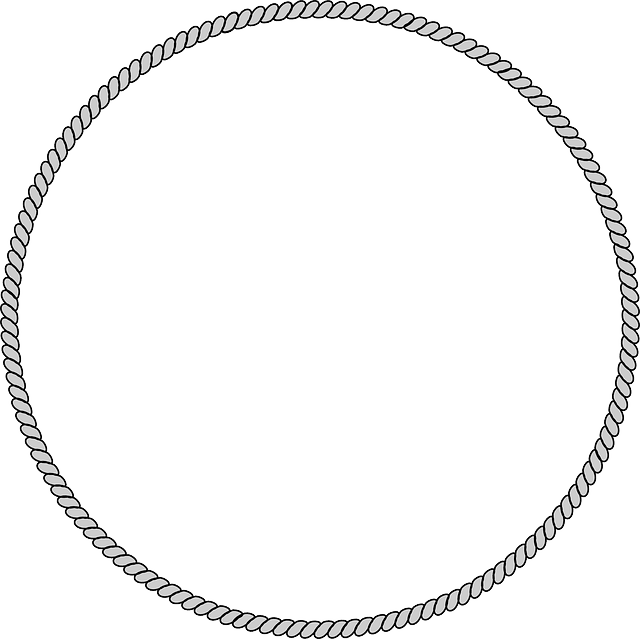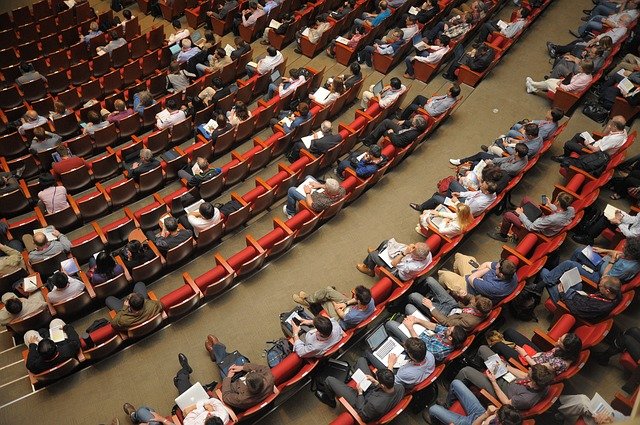
Circle is often used synonymously with circumference and round.
The word circle comes from the Latin word circulus , which is the diminutive of circus ( "fence" ). It is a synonym for roundel and, in everyday language, for circumference .
A circle, however, is the locus (set of points) of a plane that are equidistant from the center . The circle, on the other hand, is the geometric locus of the points that are on a certain circumference . Therefore, the circle is the surface that is contained by the circumference, while the circumference is the perimeter of said circle.
The center of the circle is coincident with the center of the circumference . The segment that allows said center to join any point on the perimeter is known as a radius . The largest segment that passes through the center and generates two semicircles when dividing the circle is called the diameter .
Circle and sphere
As with cube and square , the terms sphere and circle are often used synonymously, although it is more common to hear the latter in any situation.
Since the story of Christopher Columbus and his misquoted phrase " the earth is round ", people seem to ignore the depth of three-dimensional figures. This tendency, like many similar ones, is responsible for the difficulty that many people have in understanding concepts of geometry and arithmetic.
Something negative that repeats
A very popular term is vicious circle , which represents a stage in the life of a person or a society that repeats itself indefinitely , usually with a negative connotation, since it seems impossible to interrupt. This series of events that take place cyclically are a mental trap to avoid overcoming depression, or to avoid crossing a certain obstacle that prevents our progress.
Beyond its daily use by people without technical knowledge, it is a phenomenon studied by psychology and there are various treatments that aim to guide the patient towards an alternative path, which allows them to finally move forward.

A circle can be an entity that brings together people with common interests.
Circle as an entity
A circle, in another sense, is known as the organization or entity that allows a group of individuals who share interests to meet in a common space (physical or symbolic). For example: “The Readers' Circle of the City of Buenos Aires has organized a meeting with poets and novelists,” “Tomorrow I have to go to an event at the headquarters of the Military Circle,” “Juan Eshicto was invited to read his texts in the Circle of Ibero-American Poets » .
The Círculo de Lectores was founded in Barcelona, Spain, in 1962, seeking to become a network of authors and readers to bring literature to as many people as possible. Its proposal consists of offering special editions of a long list of titles, which is renewed month by month. Over the years, its foundations have changed and the current market model, which demands quality products and services at zero prices, has undoubtedly affected this company. Subscribers receive a free catalog delivered to their home, although they accept in advance the commitment to purchase a certain number of books per month.
The publications of the Círculo de Lectores, which currently reach 63 countries around the world, do not have an attractive finish; This represents one of its weak points, although it is not the only one. Being a literary movement with an international presence, it would be expected to promote those authors truly committed to letters, to enrich readers; However, once again fashion and commercial trends prevail and triumph, leaving truly authentic and valuable content in the shadows.
A context or environment
Circle is also a certain environment or context of society .
“The president's words on abortion did not go down well in religious circles” y “There is uncertainty in financial circles due to the fall in long-term deposits” son frases que muestran este uso.
